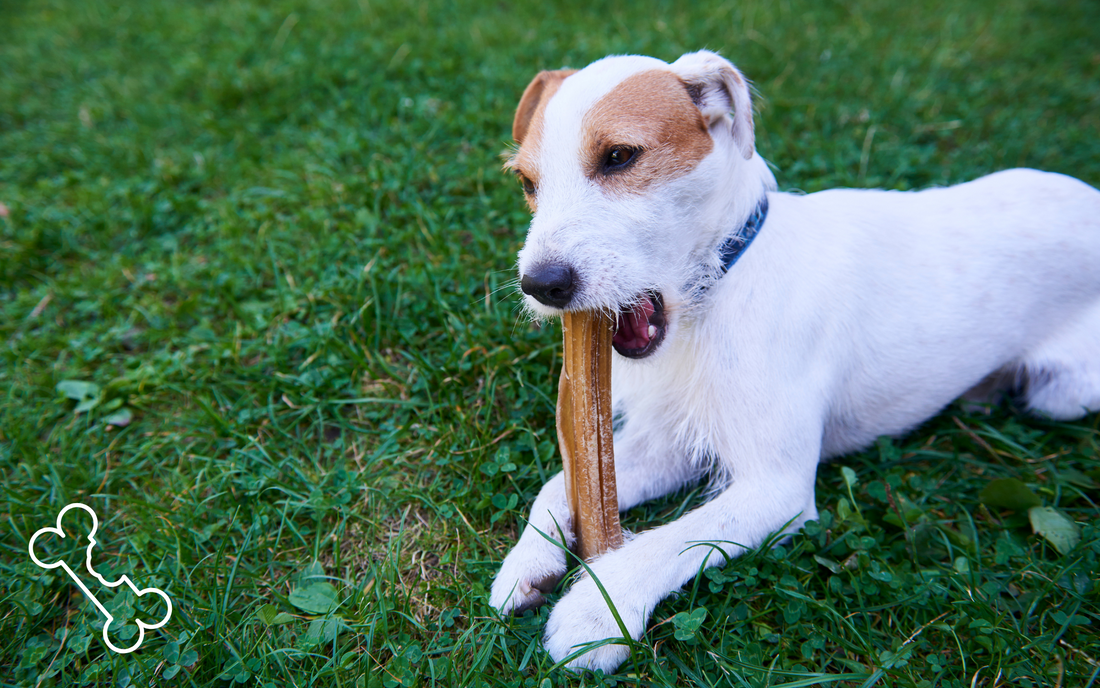Have you ever wondered if dogs are carnivores and therefore should live on a pure meat diet? Or are they omnivores like us? After all, they are more than happy to tuck into our food and sometimes they simply refuse to eat their food unless some human food put on as toppers. You might say, it doesn't matter as my dog is happy. However, the reason why it should matter is because we all want to give them the best to keep them happy and healthy and for this reason we need to know what is the best for dogs based on their build and characteristics.
Before we dive in, let's start with the basics.
Are dogs carnivores or omnivores?
A carnivore is an animal or plant that eats the flesh of other animals, put it simply they are ’meat-eaters’. These animals have higher nutritional needs for certain amino acids (taurine) and fatty acids (arachidonic acid) and animal protein is a rich source of both.
Omnivores are animals that eat both plant-and animal-derived food. In Latin, omnivore means to eat everything. Humans are typical omnivores.
Are dogs meat-eaters? Yes. Do dogs eat everything? Yes (think of those puppy eyes as you are enjoying a slice of buttery toast). Based on these two simple questions, we can already see that dogs fall into both categories. However, to muddle the water even further, carnivores can be sub-categorised further:
- Obligate carnivores, whose diet entirely rely on meat. They include members of the cat family.
- Facultative carnivores are those that also eat non-animal food in addition to animal food and dogs would be considered facultative carnivores.
- Scavenging omnivores would be another very apt term to describe dogs as they are certainly not against the idea of feeding on leftovers, be it carcasses, fallen fruit, veg or of course your toast. In the wild, they would pretty much eat anything! Their primary choice would be animal protein, however, when food is scarce they could survive on a meat-free diet until animal protein was available again. As such, in terms of behaviour, dogs would most certainly be classified as omnivores.
How about the physical traits?
Many physical characteristics of dogs show carnivorous traits, including teeth and physical build.
- Teeth - Plants include an outer layer of cellulose, which is indigestible for a typical carnivore like a cat. However, herbivores and omnivores (like humans) can extract and digest the nutrients with the help of their flat morals, which can grind the indigestible fibre. Dogs don’t have these molars but equipped with sharp, serrated ones which work like a meat-slicer. Their wide-set jaws and relatively large oesophagus are further evidence of that dogs are designed to be able to swallow large chunks of meat at a time. As such in the wild, even if dogs would munch on plant material it would not provide any nutritious and digestible nutrient; it would be done more as an activity to kill boredom or ease teething pain.
- Digestive system - Dogs stomach can take up large amount of food as generally speaking their stomach has a larger capacity plus they are equipped with shorter digestive tract. As a result food stays in their stomach for much longer which subsequently means that food is more easily broken down and digested. It also kills harmful bacteria more efficiently hence the reason why dogs don’t suffer from salmonella and the likes. The efficient digestion is further aided by the pancreas whose key role is the breakdown and digestion of fat.
Recently there has been a shift to no-grain or low-grain diets as the preferred diets for dogs and there is a genetic reason for this. Digestion of food for omnivores and herbivores start in the mouth with the production of amylase in the saliva. This helps the breakdown of carbohydrate. However, dogs lack this ability and the digestion of carbohydrate happens in the small intestine, which is a typical trait of carnivores. Dogs are able to digest carbohydrates, however, the reason why it is not advisable to put your dog on a high carbohydrate or grain diet is because they could be lacking sufficient amount of carb-processing enzymes to digest the carbohydrate.
Whilst their digestive system is dissimilar to herbivores or omnivores they are perfectly capable to digest plants and live on a plant-based diet. However, if a dog is to live on a plant-based diet, supplementation will be required to make up for those nutrients not found in plant material.
Having analysed dog’s physical traits and digestive system, it is fair to say that dogs can safely be classed as omnivores with a preference for animal protein.





